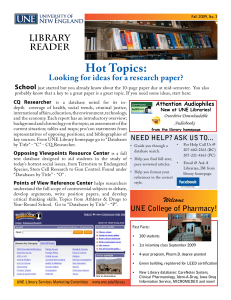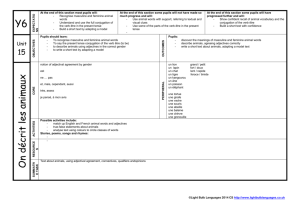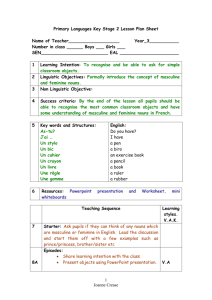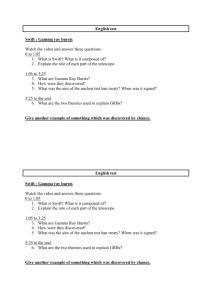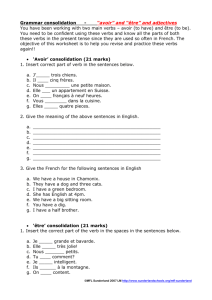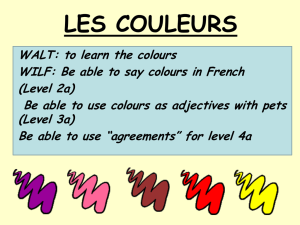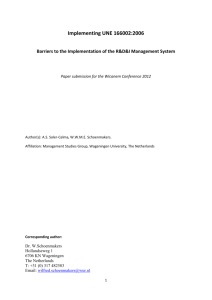The future
advertisement
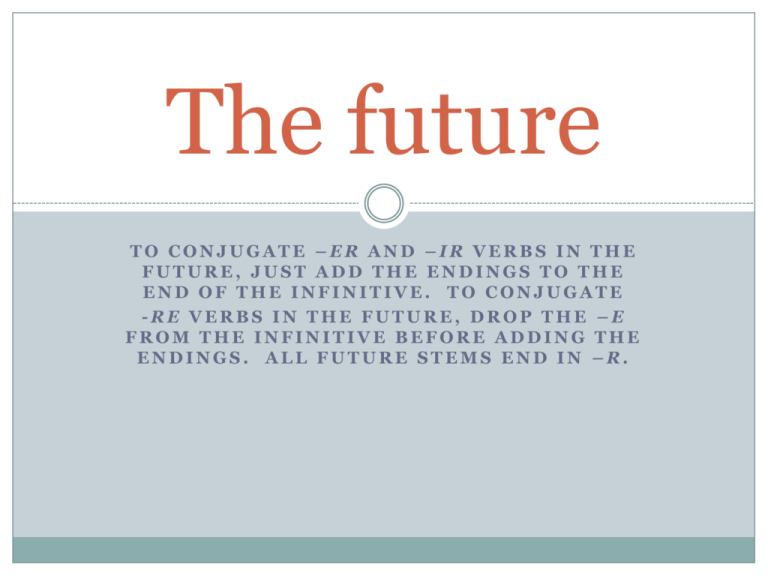
The future TO CONJUGATE –ER AND –IR VERBS IN THE FUTURE, JUST ADD THE ENDINGS TO THE END OF THE INFINITIVE. TO CONJUGATE -RE VERBS IN THE FUTURE, DROP THE –E FROM THE INFINITIVE BEFORE ADDING THE ENDINGS. ALL FUTURE STEMS END IN –R. Regular verbs in the future tense aimer choisir attendre je/j’ aimerai choisirai attendrai tu aimeras choisiras attendras il/elle/on aimera choisira attendra nous aimerons choisirons attendrons vous aimerez choisirez atttendrez ils/elles aimeront choisiront attendront Je travaillerai dans le restaurant de mes parents. Nous finirons le roman dans la classe d’anglais. Jacques apprendra l’allemand cet été. Spell Changing Verbs in the Future Many verbs that have a spelling change in the present have the same spelling change in their future stems. INFINITIVE PRESENT FUTURE acheter j’achète j’achèterai appeler j’appelle j’appellerai Some verbs have irregular future stems to which you add the future endings. Here are the stems of the most common ones. aller avoir devoir savoir être faire → → → → → → iraurdevrsaurserfer- pouvoir envoyer venir voir vouloir recevoir → → → → → → pourrenverrviendrverrvoudrrecevr- Feminine forms of nouns To form most feminine nouns add an –e to the masculine noun. un avocat/une avocate un marchand/une marchande Masculine nouns with the following endings follow a different pattern to form the feminine form. Masculine Feminine un musicien une musicienne un serveur une serveuse un acteur une actrice un boulanger une boulangère un fermier une fermière Feminine forms of nouns Others have only one form that can be masculine or feminine. un journaliste/une journaliste un architecte/une architecte un dentiste/une dentiste un artiste/une artiste Some nouns of professions which were historically held by men remain masculine whether they refer to a man or a woman. un auteur un ingénieur un juge un pilote un écrivain un médecin Feminine forms of nouns However, there are some exceptions to the rules, for example: un chanteur/une chanteuse un prince/une princesse un docteur/une doctoresse un maître/une maîtresse Irregular verb conduire (to drive) The verb conduire is irregular, its past participle is connu. The verbs traduire (to translate), construire (to build), and produire (to produce) are conjugated like conduire. je conduis nous conduisons tu conduis vous conduisez il/elle/on conduit ils/elles conduisent
